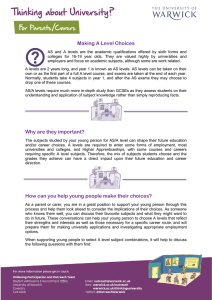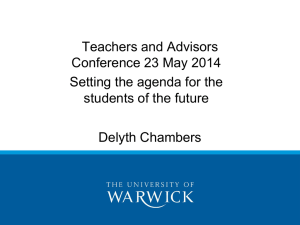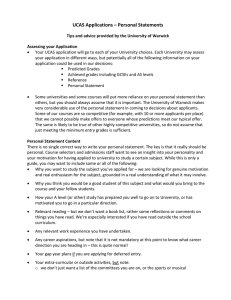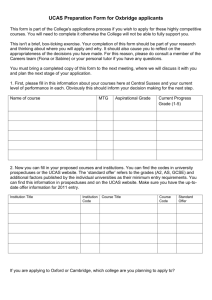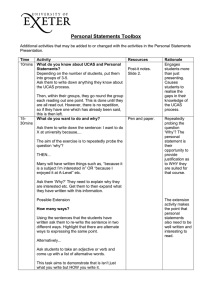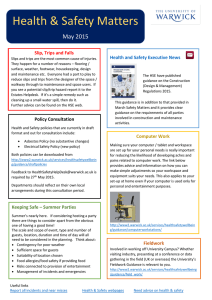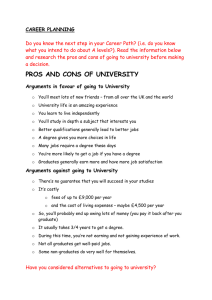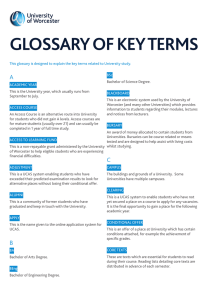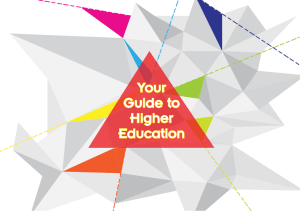What is Higher Education?
advertisement
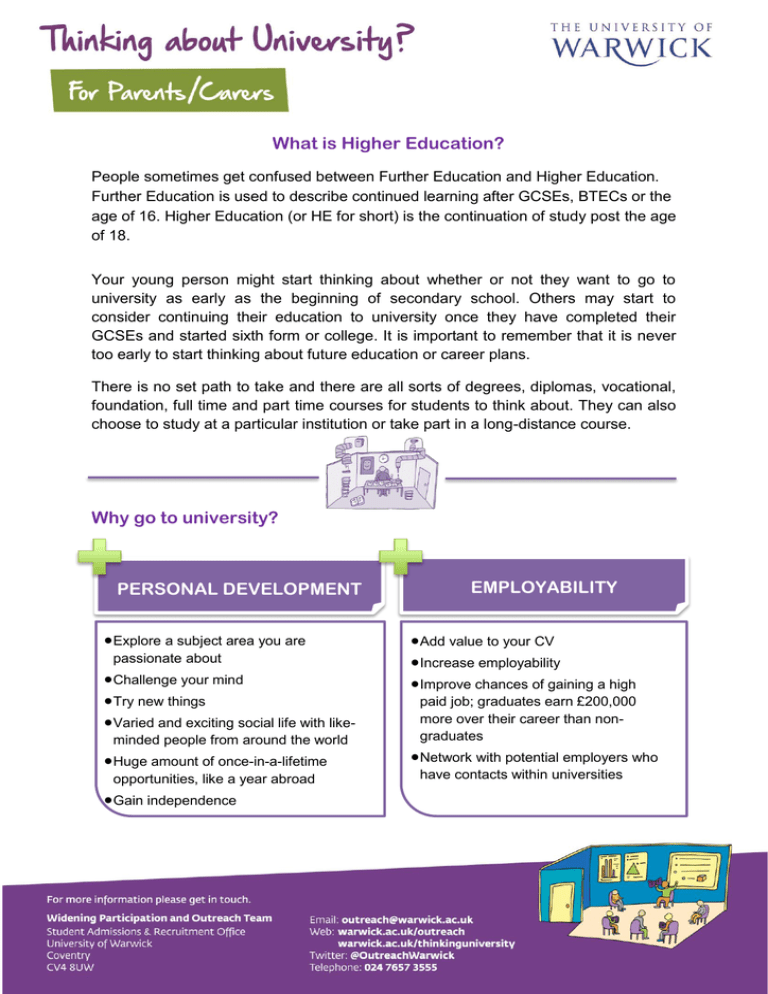
What is Higher Education? People sometimes get confused between Further Education and Higher Education. Further Education is used to describe continued learning after GCSEs, BTECs or the age of 16. Higher Education (or HE for short) is the continuation of study post the age of 18. Your young person might start thinking about whether or not they want to go to university as early as the beginning of secondary school. Others may start to consider continuing their education to university once they have completed their GCSEs and started sixth form or college. It is important to remember that it is never too early to start thinking about future education or career plans. There is no set path to take and there are all sorts of degrees, diplomas, vocational, foundation, full time and part time courses for students to think about. They can also choose to study at a particular institution or take part in a long-distance course. Why go to university? PERSONAL DEVELOPMENT Explore a subject area you are passionate about Challenge your mind Try new things Varied and exciting social life with likeminded people from around the world Huge amount of once-in-a-lifetime opportunities, like a year abroad Gain independence EMPLOYABILITY Add value to your CV Increase employability Improve chances of gaining a high paid job; graduates earn £200,000 more over their career than nongraduates Network with potential employers who have contacts within universities Who can go? Everybody who wants to go to university and has a passion for their subject should be able to go. Students who meet the conditions of their offer will be admitted to the institutions they applied for. It is important to realise that there are lots of different types of higher education opportunities for everybody, no matter what their age or their qualifications. Remember; universities and colleges are always on the lookout for bright and enthusiastic students so there is never a shortage of space. How do students choose? Making the decision to enter Higher Education can often be a challenging time, not only for students but also for their families. There is no set way to choose which course to study or where you would like to study. Some might find it easier to start by choosing a subject first and then go on to research which universities offer that course. Others may want to do things the opposite way around, deciding on a location first and then researching interesting subjects. Students have many tools available to them specifically designed to help them find the right course. UCAS, the official university application service, has an online course directory and also run regional Higher Education fairs where applicants can speak to representatives from different institutions. Prospectuses (which are free), university websites and open days are also good ways of learning about universities. It is important to remember that subject or course content will vary from university to university so students really do need to make sure that they are aware of what each course covers before applying! In the first year of Warwick's History degree, for example, students are expected to focus primarily on Modern History whereas other institutions may focus more on Medieval History. What can students study? There are lots of different types of Higher Education institutions and around 50,000 different types of course so chances are, there really is something to suit everybody. Some schools run more specialist courses for talented students in subjects like dance, drama, music and art while others provide technical classes in subjects like engineering. The best thing to do is to have a look around the UCAS website and course outline here you will be able to find a list of all the available courses at different places of Higher Education. Remember, Higher Education might not be for everybody. Below are a few examples of alternative options for school leavers: Vocational and academic routes Traineeships and apprenticeships Further, higher and postgraduate study Work experience Work and study abroad Volunteering Supported internships and sustainable employment When can you go? You can choose to go into Higher Education at any point in your life and your course can be tailored around you and your needs - it's never too late to learn something new! For younger students this might mean taking a Gap Year - a year off (or two) before deciding. The myth that students have to keep studying straight after school is not true - considering the fact that you're going to spend at least three years there you should go into Higher Education when it's right for you. Further information For more information, visit the following websites: http://www2.warwick.ac.uk/study/outreach/thinkinguni/parentscarers/ http://www2.warwick.ac.uk/study/outreach/thinkinguni/resources/glossary/ https://www.gov.uk/browse/education http://www.prospects.ac.uk/ http://www.ucas.com/ http://www.thecompleteuniversityguide.co.uk/ http://www.universitytasterdays.com/ http://www.theguardian.com/education/universityguide
